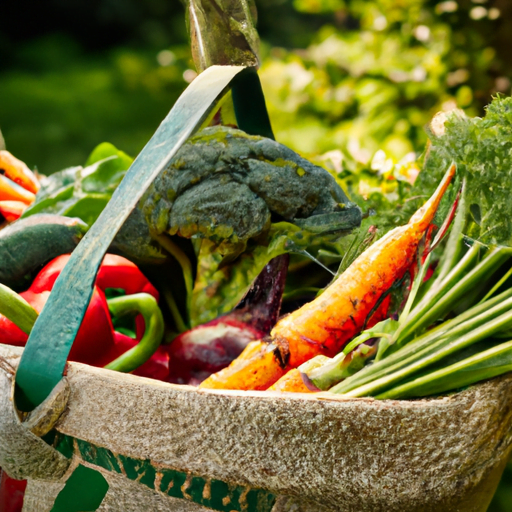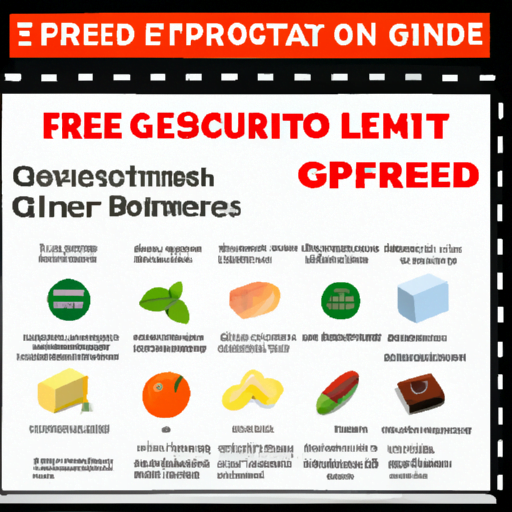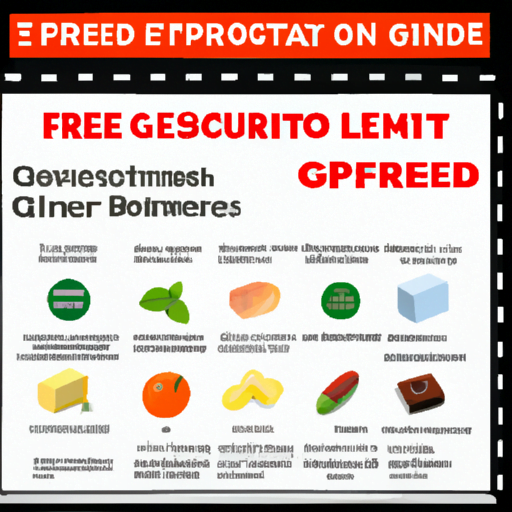So you’re thinking about living off the grid, huh? That’s pretty cool! It can be quite the adventure, but I bet you’ve got a lot of questions. Well, one thing you might be wondering about is what types of food are essential for off-grid living. After all, you won’t have the convenience of a grocery store down the street anymore. Don’t worry though, I’ve got you covered.
When it comes to off-grid living, it’s important to have a variety of food that can sustain you for long periods of time. Canned goods are a great option because they have a long shelf life and don’t require any refrigeration. Stocking up on beans, tuna, fruits, and vegetables can keep you fed for quite a while. Another option is to grow your own food. Make sure to research what types of fruits and vegetables grow well in your area and start a garden. It may take some time and effort, but the rewards are worth it.
If you’re a meat lover, don’t fret! There are several options for preserving meat without refrigeration. Curing, smoking, and dehydrating are all great methods for extending the shelf life of meat. You can also consider raising your own livestock for a steady supply of fresh meat. Chickens, rabbits, and even goats can provide you with a source of protein.
So, as you can see, there are plenty of food options for off-grid living. Whether you’re stocking up on canned goods or starting your own garden, you can ensure that you have a steady supply of food to sustain you. In our upcoming article, we’ll dive deeper into each of these options and provide more tips and tricks for off-grid living. Stay tuned!

Introduction
Living off-grid refers to the lifestyle of relying on self-sustainable and renewable resources for your everyday needs. This includes generating your own electricity, collecting rainwater, and growing your own food. While it may seem challenging, many individuals are choosing this way of life to reduce their carbon footprint and achieve self-sufficiency. In off-grid living, food plays a crucial role in ensuring you have the necessary energy and nutrition to thrive. In this article, we will explore the types of food that are essential for off-grid living and various methods of food production, preservation, and cooking.
Living Off Grid: An Overview
Understanding Off-Grid Living
Living off-grid means disconnecting from the traditional power grid and relying on alternative sources of energy such as solar panels, wind turbines, or hydroelectric power. This lifestyle allows you to be independent and reduce your reliance on non-renewable energy sources. However, it also presents unique challenges and requires careful planning and preparation.
Challenges and Benefits of Off-Grid Living
Living off-grid can be a rewarding experience, but it is not without its challenges. One of the main challenges is ensuring a consistent and reliable food supply. Unlike urban areas, where grocery stores are readily available, off-grid living requires you to be self-sufficient in producing and preserving your own food. On the flip side, off-grid living offers numerous benefits, including reduced utility bills, increased self-reliance, and a closer connection to nature.

The Importance of Food in Off-Grid Living
Food as a Source of Energy and Nutrition
Food is not just a means of survival; it is a vital source of energy and nutrition for our bodies. When living off-grid, it becomes even more critical to consume nutrient-rich foods that will sustain you throughout the day. A balanced diet that includes carbohydrates, proteins, healthy fats, vitamins, and minerals is essential to maintain good health and function efficiently in daily activities.
Food Preservation Techniques for Off-Grid Living
Off-grid living often requires you to grow your own food or source it locally. Since the availability of fresh produce may vary throughout the year, it is essential to learn various food preservation techniques. Canning and pickling are popular methods that allow you to store food for extended periods without the need for refrigeration. Dehydration and freezing are also effective ways to preserve fruits, vegetables, and meats. These techniques not only help prevent food waste but also ensure a steady food supply during leaner times.
Essential Food Categories for Off-Grid Living
Grains and Legumes
Grains and legumes are staple foods that provide a good source of carbohydrates, proteins, and fiber. They are versatile, long-lasting, and easy to store. Rice, wheat, oats, beans, lentils, and quinoa are examples of grains and legumes that should be a part of your off-grid pantry. They can be cooked in various ways and serve as the basis for many filling and nutritious meals.
Protein Sources
Proteins are essential for building and repairing tissues, as well as supporting the immune system. In off-grid living, it is crucial to have protein sources that are sustainable and require minimal resources to produce. Consider including plant-based proteins such as tofu, tempeh, and seitan, as well as nuts, seeds, and legumes in your diet. If you have the resources, raising livestock such as chickens or rabbits can provide a reliable source of animal protein.
Fruits and Vegetables
Fresh fruits and vegetables are a valuable source of vitamins, minerals, and antioxidants. While growing your own produce may require some initial investment and effort, it pays off in the long run. Focus on planting fruits and vegetables that are suited to your climate and can be easily preserved, such as root vegetables, leafy greens, tomatoes, and berries. If gardening is not possible, consider sourcing locally grown produce or preserving seasonal fruits and vegetables when they are abundant.
Dairy and Dairy Alternatives
Dairy products can be a challenge in off-grid living, as they require refrigeration. However, there are alternatives such as non-dairy milk made from oats, almonds, or coconuts, which can be made at home without the need for refrigeration. If you have the means and space, raising dairy animals like goats or cows can provide you with a sustainable source of milk, cheese, and yogurt.
Fats and Oils
Fats and oils are essential for cooking and provide a concentrated source of energy. Choose healthy options like olive oil, coconut oil, or butter, which can be stored without refrigeration. If available, consider rendering animal fats from livestock you raise or sourcing locally produced oils.

Sustainable Food Production in Off-Grid Living
Permaculture and Organic Farming
Permaculture and organic farming are sustainable approaches to food production that focus on working with nature rather than against it. These methods prioritize soil health, biodiversity, and natural pest control. By implementing permaculture principles, such as companion planting and natural irrigation systems, you can create a resilient and productive food garden even in off-grid living situations.
Livestock and Poultry Farming
Raising livestock and poultry can provide a sustainable source of protein and other nutrients in off-grid living. Chickens, rabbits, and goats are popular choices as they require less space and resources compared to larger animals like cows or pigs. By practicing ethical and humane methods of animal husbandry, you can ensure a continuous supply of eggs, meat, or dairy products.
Aquaponics and Hydroponics
Aquaponics and hydroponics are innovative methods of growing food without soil. In aquaponics systems, fish waste provides nutrients for plants, while the plants filter the water for the fish. Hydroponics involves growing plants in nutrient-rich water solutions. Both systems can be adapted to off-grid living, allowing you to grow a wide variety of vegetables and herbs in limited space and with minimal water usage.
Foraging and Hunting in Off-Grid Living
Identifying Edible Plants in the Wild
Foraging involves gathering wild plants and mushrooms for food. However, it is essential to have in-depth knowledge of edible plants and mushrooms, as well as the ability to differentiate them from poisonous species. Invest time in learning about edible wild plants in your area and consult experienced foragers or books to ensure your safety.
Safe Techniques for Hunting and Fishing
Hunting and fishing can provide a valuable source of meat and fish in off-grid living. However, it’s essential to follow local hunting and fishing regulations and practice ethical and sustainable methods. Consider learning basic hunting and fishing techniques, as well as proper meat preparation and storage to ensure the safety and quality of your food.

Food Storage and Preservation Methods
Root Cellars and Pantries
Root cellars and pantries are traditional methods of storing food in off-grid living. Root cellars allow you to store root vegetables, fruits, and canned goods in a cool, dark, and well-ventilated space. Pantries are ideal for storing dry goods such as grains, legumes, and canned foods. Make sure to organize your food supplies properly and rotate them to maintain freshness.
Canning and Pickling
Canning and pickling are time-tested methods of food preservation that allow you to store fruits, vegetables, and even meat for extended periods without refrigeration. Invest in canning jars, lids, and a pressure canner or water bath canner to safely preserve your harvest. Pickling involves immersing vegetables or fruits in a solution of vinegar, salt, and spices, which acts as a natural preservative.
Dehydration and Freezing
Dehydrating fruits, vegetables, and meats is an excellent way to remove moisture and extend their shelf life. Invest in a food dehydrator or use traditional methods such as sun-drying or air-drying. Freezing is another effective option if you have access to electricity. Store frozen food in a well-insulated freezer or consider burying a freezer underground to utilize the natural coolness of the earth.
Self-Sustainability and Food Security
Seed Saving and Food Independence
Seed saving is a crucial practice in off-grid living as it ensures the availability of future crops and maintains genetic diversity. Learning how to save seeds from open-pollinated plants allows you to produce your own seeds year after year, reducing reliance on external sources and ensuring food independence.
Community-Based Food Systems
In off-grid living, building resilient and supportive communities can greatly enhance food security. Participating in community gardens, seed exchanges, or bartering with neighbors can provide a diverse range of food and resources. Sharing knowledge and skills within the community creates a network of self-sufficient individuals who can assist each other in times of need.
Off-Grid Cooking Techniques and Tools
Open Fire Cooking
Cooking over an open fire is a classic off-grid cooking technique. It requires minimal equipment and can be done using wood, charcoal, or even dried animal dung as fuel. Invest in a sturdy cooking grate or tripod, cast iron pots and pans, and utensils suitable for open fire cooking. The smoky flavor adds a unique element to your meals.
Solar Ovens
Harnessing the power of the sun, solar ovens are an eco-friendly off-grid cooking solution. These ovens use reflective surfaces to concentrate sunlight and convert it into heat for cooking. They are ideal for baking, roasting, and slow cooking. Investing in a solar oven allows you to cook without using any electricity or fuel.
Rocket Stoves and Outdoor Grills
Rocket stoves are efficient and portable cooking devices that burn small twigs and wood debris. They are suitable for cooking small meals or boiling water. Outdoor grills, such as charcoal grills or propane-fueled grills, are also popular options for off-grid cooking. These versatile cooking tools allow you to enjoy grilled meats and vegetables while utilizing minimal resources.
Conclusion
Living off-grid requires careful consideration of essential food categories, sustainable food production methods, and efficient food preservation techniques. By prioritizing self-sufficiency and resilience, you can ensure a steady supply of nutritious food in harmony with nature. Whether it’s growing your own produce, preserving seasonal bounties, or honing your hunting and foraging skills, off-grid living offers a unique opportunity to connect with your food sources and adopt a more sustainable and independent lifestyle. So, whether you choose to embrace off-grid living partially or fully, the types of food you consume will be crucial to your success and overall well-being.




